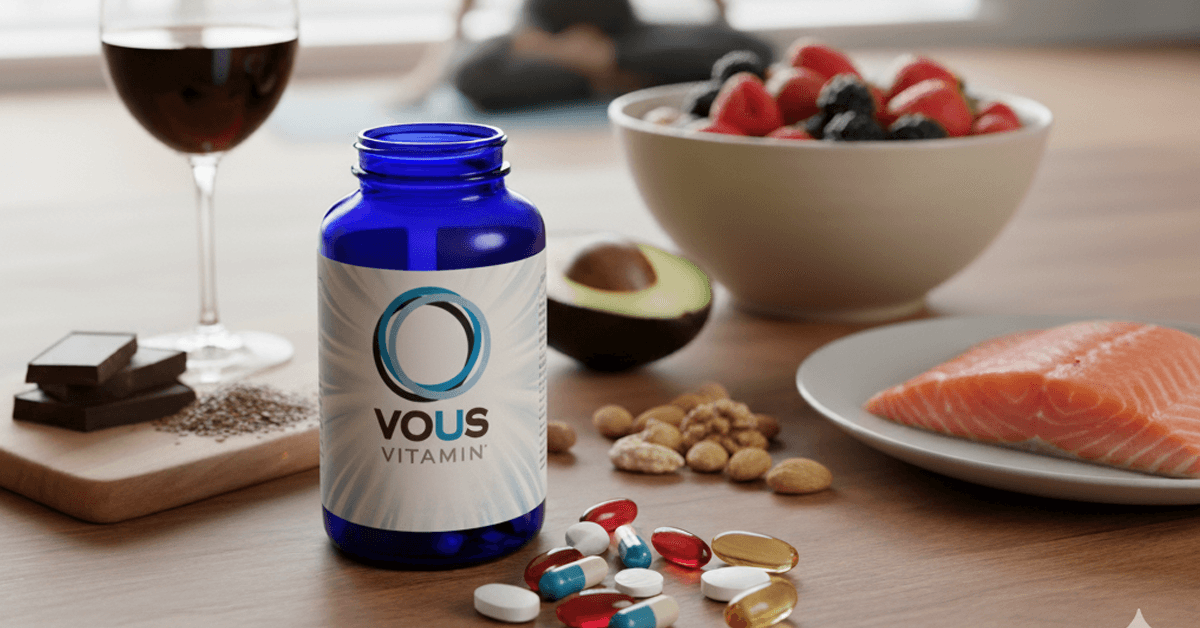The Importance of Tailored Vitamins in a Cholesterol Management Plan – Vous Vitamin
Genetics undeniably influence cholesterol levels. While some people are lucky with their genes, many of us have to work harder to boost our HDL cholesterol. How can we achieve this? First and foremost, exercise! We cannot emphasize its importance enough. Regular aerobic activity not only helps lower bad cholesterol (more on that later) but also assists in raising your HDL. The mechanics behind this are intricate, but it appears that exercise effectively reduces the bad cholesterol, tipping the scales in favor of the good. Although the evidence on whether an increase in HDL directly correlates with better health outcomes is still being studied, it is widely accepted that having higher HDL is beneficial. Additionally, the proverb “you are what you eat” applies here; certain foods can help elevate HDL cholesterol. Foods rich in good cholesterol do not include your grandmother’s tub of margarine. Natural foods like fish (especially salmon), avocados, nuts, and olives are abundant in good cholesterol. Including these foods in your diet is an excellent way to elevate HDL levels, but remember that they are high in calories and fats, so moderation is crucial. Fortunately, the fats they contain are the healthy kind.
Other food products containing plant sterols, such as Benecol® , can also support HDL levels. Ground flaxseeds or flaxseed oil can be beneficial too, but the seeds need to be ground or crushed for optimal nutrient absorption. We recommend Bob’s Red Mill® ground flaxseeds, available at local grocery stores, which can be added to various foods (cereal, pancake batter, baked goods, yogurt, salads, etc.) without being noticeable. Flaxseed oil is available in liquid or capsule form. Additionally, red wine may contribute to increasing HDL. This might be the best news you’ve encountered! However, this is not an endorsement for excessive red wine consumption; moderation is essential. The suggested limit is one glass of red wine per day for women, while men can enjoy a second glass until they reach sixty-five, after which the recommendation shifts to one glass daily.
One of the most popular supplements for boosting HDL is fish oil or omega-3 fatty acids. These come in various forms: capsules, liquids, or gummies, and are rich in the nutrients that promote HDL levels. They may also offer anti-inflammatory properties and are sometimes recommended for arthritis relief. However, caution is advised—ensure that any product is free from contaminants like mercury, which can pose serious health risks. Choosing a high-quality supplement is crucial, and a sufficient dosage typically needs to be at least 1,000 mg of omega-3s daily. Some individuals report fishy aftertastes from certain fish oil products, or even stomach discomfort, which can often be mitigated by freezing the pills. Many people prefer gummy forms, but these can be pricey, high in calories, and may require multiple gummies to reach an effective dose of omega-3s.
Combining an omega-3 supplement with a personalized multivitamin can be a wise choice. Numerous personalized vitamin companies now offer digital assessments to determine your daily vitamin requirements. These online surveys gather data about your health, diet, and lifestyle, allowing for a tailored formulation that matches your unique profile. Such services are recommended because they can provide better dosing compared to standard multivitamins. It is essential to select a service that aligns with your budget and daily routine, considering factors like pill count, cost, and the company’s credibility. A personalized vitamin approach is generally preferable to self-experimentation, and it’s advisable to discuss any personalized vitamin options with your physician to ensure they fit into your overall health plan.
Genetics influence cholesterol levels, making it easier for some to maintain high HDL. To boost HDL, exercise is key, as aerobic activity elevates good cholesterol. Diet also plays a vital role; foods like salmon, avocados, nuts, and olives contribute to higher HDL. Additionally, plant sterols, ground flaxseeds, and moderate red wine consumption can help. Omega-3 supplements, often taken as fish oil, are effective for raising HDL but should be chosen carefully to avoid contaminants. Personalized multivitamins based on individual health assessments may also enhance nutritional intake, but should be discussed with a physician for safety.
Source link

